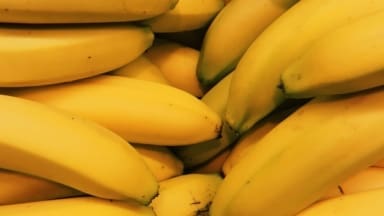
First discovered in the 1990s, the rapidly spreading TR4 raises international concerns about future food security in the tropics and the sustainability of the global banana trade.
Bananas are world’s most eaten fruit (100 million tonnes produced annually) and the fourth most important food crop in developing countries (after wheat, rice and maize). More than 1000 banana varieties are produced globally, but the most commercialised cultivar is the Cavendish, which accounts for 47% of global production (FAO). Lesser traded varieties include; Grande naine, Williams, Lacatan, Poyo and Petite naine.
An aggressive fungus, TR4 has spread across South-East Asia, to the Middle-East, the Indian subcontinent and Africa. In 2019, plantations in Columbia were affected for the first time. Latin America is home to the world’s largest banana producers. The fungus infects the roots, vascular system, eventually killing the plant and rendering the soil unsuitable for further banana cultivation. According to Wageningen University & Research, TR4 can also affects other local banana varieties, making it particularly dangerous.
Sadly we have been here before. Until the 1950s, the Gros Michel cultivar dominated production, only to be eradicated by Fusarium oxysporum (f.sp. cubense). At the time, no effective control methods were found other than replacing the disease stricken Gros Michel with Cavendish in the 1960s. Since then, Cavendish production expanded into the current large global monocultures.
The Cavendish is derived from the wild species, Musa acuminata. The domestication of bananas (series of crossings and selections) has lead to the asexual, seed suppressed, mass cloned fruit we have come to know today. Without variation and genetic diversity, domesticated cultivars such as Cavendish have little to no resistance to pathogens.
Scientists, researchers and producers around the world are working to produce a TR4 resistant banana. In March this year, Queensland University of Technology submitted a reported highly TR4 resistant, genetically modified banana (QCAV-4) for approval by the Australian government.
TR4 has exposed the danger of monoculture, which may (in future) impede the development of the next Cavendish and should be big warning to the (entire) fruit industry. Some argue, the time has come for farmers to overhaul banana production and stop growing only one variety of fruit altogether. The natural tendency in big business to keep things simple and efficient, may produce cheap crops but it will hurt in the end. Again.

